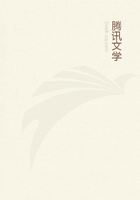
第76章 THE PUBLIC EXAMINATION.FEBRUARY,(4)
She maintained her resolution to say nothing of her voices."We"according to the record "required of her that she should swear simply and absolutely without reservation."She would seem to have replied with impatience,"Let me speak freely:"adding "By my faith you may ask me many questions which I will not answer":then explaining,"Many things you may ask me,but I will tell you nothing truly that concerns my revelations;for you might compel me to say things which I have sworn not to say;and so I should perjure myself,which you ought not to wish."This explains several statements which she made later in respect to her introduction to the King.She repeated emphatically:"Iwarn you well,you who call yourselves my judges,that you take a great responsibility upon you,and that you burden me too much."She said also that it was enough to have already sworn twice.She was again asked to swear simply and absolutely,and answered,"It is enough to have sworn twice,"and that all the clerks in Rouen and Paris could not condemn her unless lawfully;also that of her coming she would speak the truth but not all the truth;and that the space of eight days would not be enough to tell all.
"We the said Bishop"(continues the report)"then said to her that she should ask advice from those present whether she ought to swear or not.She replied again that of her coming she would speak truly and not otherwise,nor would it be fit that she should talk at large.We then told her that it would throw suspicion on what she said if she did not swear to speak the truth.She answered as before.We repeated that she must swear precisely and absolutely.She answered that she would say what she knew,but not all,and that she had come on the part of God,and appealed to God from whom she came.Again requested and admonished to swear on pain of every punishment that could be put on her,again answered '/Passez outre/.'Finally she consented to swear that she would speak the truth in everything that concerned the trial."Her examination was then resumed by Beaupère as before,who elicited from her that she had fasted (he seems to have wished to make out that the fasting had something to do with her visions)since noon the day before (it was Lent);and also that she had heard her voices both on that day and the day before,three times on the previous day,the first time in the morning when she was asleep,and awakened by them.
Did she kneel and thank them?She thanked them,sitting up in her bed (to which she was chained,as her questioner knew)and clasping her hands.She asked them what she was to do,and they told her to answer boldly.
It may be remarked here that more frequently as the examination goes on,part of Jeanne's words are quoted in the first person,as if the reporters had been specially struck by them,while the bulk of her evidence goes on more calmly in the third person,the narrative form.
After saying that she was bidden to answer boldly,she seems to have turned to the Bishop,and to have addressed him individually:"You say you are my judge;I warn you to take care what you are doing,for I am sent from God,and you are putting yourself in much peril"(/magno periculo:gallice/,adds the reporter,/en grant dangier/).
She was then asked if her voices ever changed their meaning,and answered that she had never heard two speak contrary to each other;what they had said that day was that she should speak boldly.Asked,if the voice forbade her to reply to questions asked,she replied;"Iwill not answer you.I have revelations touching the King which I will not tell you."Asked,if the voices forbade her to reveal these revelations,she answered,"I have not consulted them;give me fifteen days'delay and I will answer you";but being again exhorted to reply,said:"If the voice forbade me to speak,how many times should I tell you?"Again asked,if she were forbidden to speak,answered,"Ibelieve I am not forbidden by men"--repeating that she would not reply,and knew not how far she should reply,for it had not been revealed to her;but that she believed firmly,as firmly as the Christian faith,and that God had redeemed us from the pains of hell,that this voice came from Him.
Questioned concerning the voice,what it appeared to be when it spoke,if that of an angel,or from God Himself;or if it was the voice of a saint or of saints (feminine),answered:"The voice comes from God;and I believe that I should not tell you all I know,for I should displease these voices if I answered you;and as for this question Ipray you to leave me free."Asked if she thought that to speak the truth would displease God,she answered,"What the voices say I am to tell to the King,not to you,"adding that during that night they had said much to her for the good of the King,and that if she could but let him know she would willingly drink no wine up to Easter (the reader will remember that her frugal fare consisted of bread dipped in the wine and water,which is justly called /eau rougie/in France).